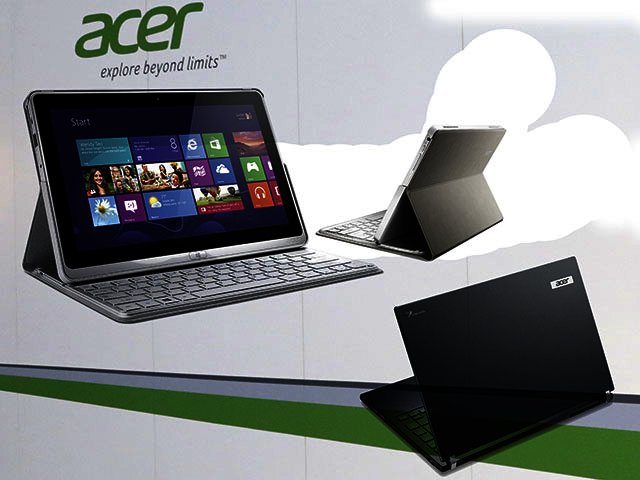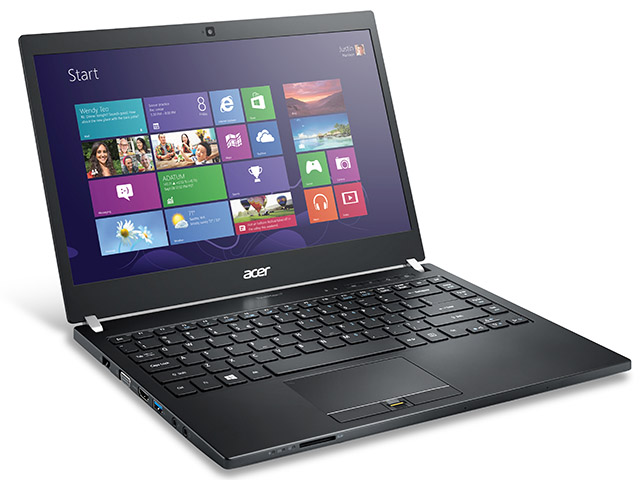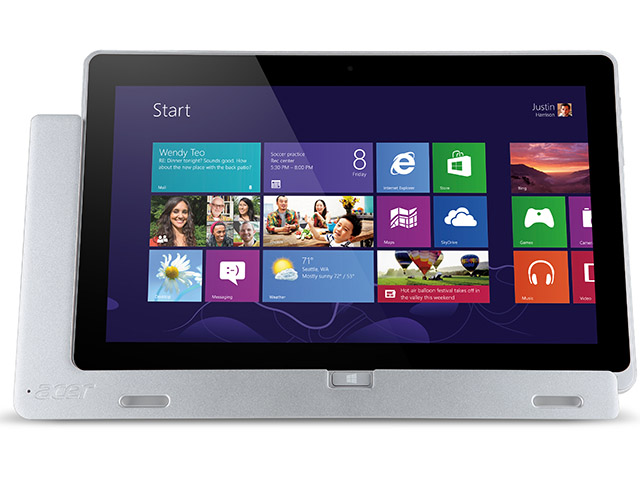Acer reveals several new impending notebooks
By Ryan Noik 7 October 2013 | Categories: feature articles
Along with unveiling its strategy for the commercial sector, Acer also unleashed a tour de force of new products in Amsterdam, The Netherlands. At the invitation of Acer, TechSmart was on hand to witness the unveiling of Acer’s new offerings, and garner some first impressions.
While Acer showcased an extensive range of devices across its portfolio, there were a few hardware highlights – namely, notebooks - that really stood out.
Leading the pack were the new TravelMate P645 and P445 series. While both are billed as the company’s business ultrabook, the former boasts a “rock solid” carbon fibre chassis, as compared with the P445’s still highly durable aluminum/magnesium alloy chassis.
Firm favourites
The P645 is also a bit more portable, with a slim profile (20.9 mm height), while weighing in at a very manageable 1.5 kg. Worth noting too is that the P6 series will come in 13”, 14” and 15” models. No less important, we were told that the P645 will boast eight hours of battery life, as well as 3G, NFC and the new 802.11ac Wi-Fi standard. Additionally, as befitting business users, for whom security is key, the ultrabook sports Intel vPro technology.
The 14” P445 series meanwhile packs one of our favourite features, a backlit keyboard, and almost ten hours of battery life, but is slightly heavier at 2.2 kg. Similarly, the ever-present security concern that haunts enterprises is addressed via Trusted Platform Module (TPM) and a biometric (fingerprint) reader.
Both of these are expected to peak their heads above water in the EMEA region before the end of the year, with the P645 sporting a starting price of €1 150 (R15 000), while the P445 is expected to start at €700 (R9 100).

Perhaps the flagship of the professional, business orientated range is the P645, which boasts a carbon fibre chassis for high levels of durability.
Prince of portability
The TravelMate X313 is the ultrabook/tablet that most caught our eye. This 11.6” touch device, which at one moment resembled a Windows 8 tablet, and the next, an ultrabook, won’t be weighing too many executives down, at 770 g. If Acer’s asserted battery life – up to a superb 18 hours in reading mode – is accurate, it really may just be the work addict’s next best friend. In our brief hands on time spent with it though, we were actually very impressed, which is not something we have been that accustomed to saying about Windows 8 ultrabooks or tablets for quite some time.
Much like we found on Acer’s rather different Aspire R7 (review), the touchscreen was close to the top of the keyboard, which, for those who do like to navigate Windows 8 primarily using touch and gestures, did feel like a more intuitive and accessible design.
Also, we were more than a little impressed by the build quality (aluminum) and keyboard on offer. The ultrabook felt particularly solid, while the keyboard, which was quite compact, was nonetheless comfortable to type on.
The final part of our hands on impression that won us over came from the bright and sharp screen, which was a pleasure to look at and exceedingly fast and responsive, not surprising considering it packs the 3rd gen Intel Core i5 processor (not Haswell, at least at this point).

The smaller TravelMate X313 ultrabook/tablet hybrid is still very spiffy and versatile in its own right, whether in a traditional keyboard docking station or in the media viewing docking station above.
Rough and tumble
According to Acer, its erstwhile tablet-ultrabook offering will be up to weathering the elements, and has been subjected to temperature, acoustic noise, vibration, shock, free drop and pressure tests “in order to offer users the most reliable all-in-one device.”
Furthermore, the company assured that this device similarly caters to the security priority of its bigger notebook brothers. To this end, it has been equipped with facial recognition software, Trusted Platform Module (TPM) password for data protection and Intel Anti-Theft Technology, to ensure that sensitive information remains in safe hands. Price wise, expect to see it, similarly this year rather than next, accompanied by a starting pricetag of €1 000 (R13 000).
To the point
Of course, that wasn’t all that Acer brought to Amsterdam, but it was certainly enough to whet our appetite for the months and year ahead. Hopefully, 2014 will once again be an exciting year for mobile computing, particularly as in 2013, the product category seemed to have lost a bit of its shine.
For Acer though, at least on the commercial side of its products, based on our preliminary look at its lineup, it certainly seems to have an impressive lineup, leaving business users with some tantalising choices.
Most Read Articles

Have Your Say
What new tech or developments are you most anticipating this year?



